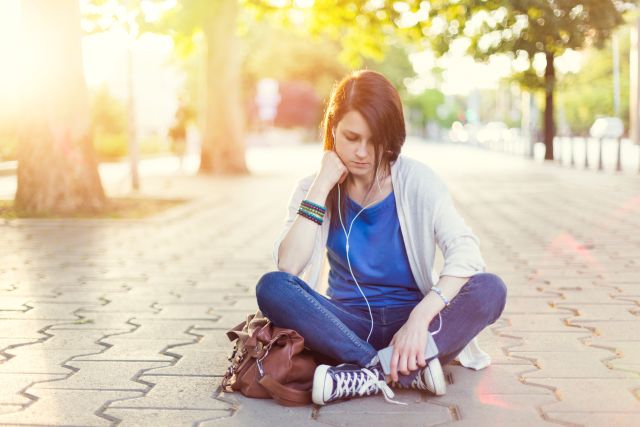Updated on August 1, 2022.
It can sometimes be tempting to shake off schoolyard bullying, saying, “Oh, they’re just kids, they’ll grow out of it.” But while it may be widespread, being bullied isn’t a childhood rite of passage—and it can have lifelong consequences
A growing body of research suggests that the trauma resulting from those childhood taunts, social snubs, and nasty texts can add up and have lingering effects on mental and physical health.
“The emotional and physical trauma from being bullied can make people more prone to feelings of anxiety and panic attacks,” says Yevgeniy Gelfand, MD, a psychiatrist at Trident Medical Center, in Charleston, South Carolina. And those reactions don’t automatically go away when you graduate from high school.
In the short term, we know that bullying can cause physical and emotional symptoms; stomachaches, social isolation, trouble sleeping, and poor performance in school. A 2021 study in the journal BMJ Paediatrics suggests, however, that childhood bullying, which occurs during a critical stage of development, raises concerns about long-term consequences, ranging from poor self-esteem to chronic health issues.
Lasting health effects of bullying
Being bullied is associated with greater odds for developing a range of long-term problems—possibly resulting from the chronic stress, according to a 2017 review of bullying studies published in the Harvard Review of Psychiatry. Over time, researchers found that ongoing stress could trigger inflammation and alter metabolism, which may even influence gene expression and play a role in the development of certain diseases, such as diabetes and heart disease.
Teens who are bullied may face a greater risk for depression and anxiety disorders, including panic disorder and agoraphobia, a condition characterized by fear and avoidance of anxiety-provoking places or situations, research shows. There is also evidence that some kids targeted by bullies may be at higher risk for suicidal thoughts or behaviors, experience more body aches and pains, take longer to recover from illnesses, and have trouble dealing with everyday life stressors.
Victims’ confidence may suffer
Bullying can cause long-term damage to kids’ self-esteem. Students who are bullied may be less likely to participate in extracurricular activities, speak up in class, or do well on standardized tests. They are more likely to drop out of high school.
This could be partly because victims of bullies may internalize the abuse hurled their way when they were growing up, Dr. Gelfand explains. “When someone has low self-esteem and feels that the world is not their oyster, that it's a scary and dangerous place, they tend to lead very secluded lives or they don't engage in certain activities and they shy away from experiences that could be beneficial for them,” he says.
If they were excluded from friend groups, bullying victims may not have been able to fully develop important social skills, Gelfand adds, and their misguided notion that they are unlikeable may persist for years to come.
Ongoing bullying linked to PTSD
Kids who experience chronic bullying can experience the same kind of post-traumatic stress disorder (PTSD) that survivors of other types of abuse suffer, according to Gelfand. “When someone feels like they are in danger all the time, that can result in PTSD,” he says.
Over time, children and teens who are constantly bullied may feel weak or helpless. This loss of empowerment, which is often associated with trauma, can chip away at victims’ sense of self. PTSD in children can become a chronic health issue, and is associated with the occurrence of other mental health conditions such as depression and anxiety.
Research conducted by the Eunice Kennedy Shriver National Institute of Childhood Health and Human Development supports the link between being bullied—and bullying others—and an increased risk for depression.
Your past does not have to determine your future
Whether or not childhood bullying leads to a long-term mental or physical health issue also depends on the type, severity, and duration of the abuse, as well as the resilience of the victim and whether or not they have the support of friends and family.
Many people who have been bullied have gone on to lead happy, fulfilling lives. Success stories include pop star Rihanna and Olympic swimming star Michael Phelps, who have spoken publicly about being bullied as children.
Getting the help you need to work through your trauma can help you take your life back from the bullies who tormented you years ago, says Gelfand. He advises those struggling with the long-term effects of bullying to take some proactive steps, such as the following.
Ask your doctor to recommend a therapist. Cognitive behavioral therapy (CBT) can be an extremely helpful tool for working through fears and anxieties, says Gelfand. “CBT teaches people very important skills, such as to how to evaluate their own fears, and how to address cognitive distortions and ‘all or nothing’ statements, like ‘I will never be good for anybody.’ It can really help rewrite any negative beliefs, or at least help you notice when these negative beliefs are triggered and to learn not to let that dictate your actions,” he says.
Find a support group. Talking about your trauma with others can help you feel less alone, says Gelfand, who runs a group-therapy program for adults in Charleston. “Even people who are suffering from social anxiety as a result of their childhood experience with bullying can little by little begin to engage with the group,” he says. “They warm up and do really well, so a group venue is also valuable for this.”
Consider medication. In some more extreme cases, if the trauma from bullying has left such deep emotional scars that it has caused severe depression or anxiety, antidepressants or anti-anxiety medications can be a game-changer, says Gelfand.
It’s important to know the warning signs of depression, which can manifest in a variety of ways. Someone with depression may experience one or more of the following symptoms:
- Feeling sad, hopeless, or “empty” for a prolonged period of time
- Loss of interest or pleasure in hobbies and once enjoyable activities
- Being irritable and less social or withdrawn
- Changes in appetite or sleep habits
- Feeling guilty, worthless, or helpless
- Loss of energy
- Moving less quickly or talking more slowly
- Memory problems
- Difficulty concentrating or making decisions
If you start to recognize any of these behaviors, it’s important to reach out to a healthcare provider (HCP) for help.







